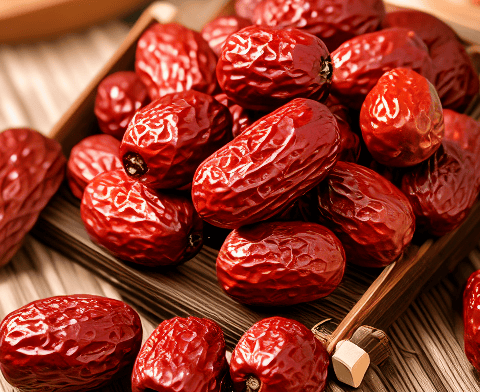Introduction: As autumn arrives, the winds blow and crabs are on the move, golden leaves lay scattered along the pathways, signaling the arrival of the best season for nourishment. As the old saying goes, “If you nourish well in autumn, illness won’t find you in winter.” In this bountiful season, nature generously offers us a wealth of ingredients to nourish both body and mind, preparing us with energy for the upcoming cold winter. Today, we will discuss the aspects of nourishing in autumn, especially the “three reds and three whites.” Not only do they align with the season, but they are also excellent for nourishing the body, ensuring you can embrace each warm morning in peace.
1. The way to nourish in autumn lies in “conserving” and “moistening.”
In autumn, the five elements correspond to metal, relating to the lungs in the human body, which govern the qi, control respiration, and are linked to the skin, with sensory openings in the nose. As temperatures gradually drop and the air becomes dry, the body often experiences symptoms such as dry throat, nasal dryness, and skin dryness, referred to in Traditional Chinese Medicine as “autumn dryness.” Therefore, the method of nourishing in autumn focuses on “conserving” and “moistening,” aiming to both gather lung qi and hydrate the body to achieve a balance between yin and yang, enhancing physical health.
2. The “three reds” warm the body and nourish the heart, making them great helpers for autumn nourishment.
1. Red dates: Nourish blood and calm the mind, sweet and nourishing.
Red dates have been a renowned nourishing food since ancient times, known as the “king of fruits.” They are warm in nature and sweet in taste, entering the spleen and stomach meridians, and are effective for tonifying the middle, benefiting qi, nourishing blood, and calming the mind. Consuming red dates in autumn not only alleviates discomfort caused by autumn dryness but also helps improve problems like insomnia, vivid dreams, palpitations, and forgetfulness that arise from seasonal transitions. Modern research has also found that red dates are rich in iron and vitamin C, which aid in promoting blood circulation and enhancing immunity.
Consumption tips: Red dates can be eaten directly or used to brew tea or cook porridge with goji berries, longan, etc., making it both delicious and nourishing.
2. Sweet potatoes: Strengthen the spleen and benefit the stomach, warming the body and mind.
Sweet potatoes may seem unremarkable, but they are a common item on autumn dinner tables. They are neutral in nature and sweet in taste, entering the spleen and kidney meridians, and are effective for tonifying the spleen, benefiting qi, and promoting bowel movements. Sweet potatoes are high in dietary fiber, which can promote gastrointestinal motility and aid digestion, making them an excellent choice for relieving constipation and improving gut health in autumn. In addition, the β-carotene and vitamin C in sweet potatoes can enhance the body’s immunity and prevent colds.
Consumption tips: Sweet potatoes can be steamed, boiled, baked, or fried, but to maintain their nutritional value, steaming or boiling is recommended to avoid excessive oil intake.
3. Red peppers: Warm the center and dispel cold, boost appetite and refresh the mind.
Although red peppers are classified as spicy, moderate consumption in autumn can warm the center, dispel cold, boost appetite, and refresh the mind. Red peppers are rich in vitamin C and capsaicin, which can promote blood circulation, speed up metabolism, help the body expel dampness, and alleviate autumn fatigue. Moreover, capsaicin can stimulate the taste buds, increasing appetite, making them especially suitable for those experiencing a lack of appetite in autumn.
Consumption tips: Red peppers can be cooked with meat and vegetables, but it’s important to control the amount consumed to avoid overstimulating the gastrointestinal tract.


